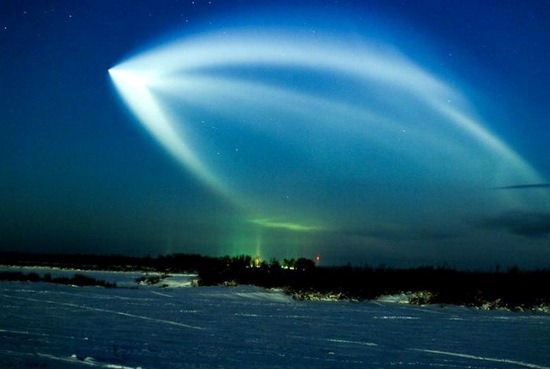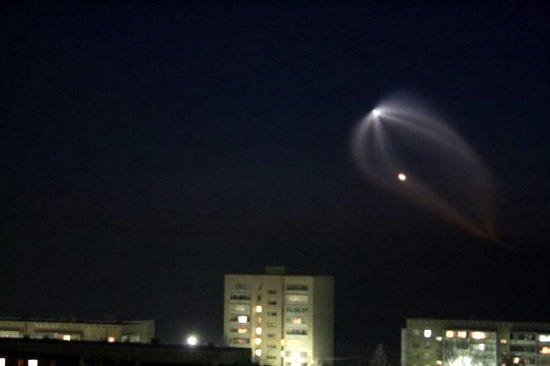Sometimes when the weather, the time and the light is just about right, rocket launches can leave spectacular trails over the sky. It’s called twilight phenomenon. This happens when unburned particles of rocket propellant and water left in the vapor trail of a launch vehicle condenses, freezes and then expands in the less dense upper atmosphere. The exhaust plume, which is suspended against a dark sky is then illuminated by reflective high altitude sunlight, which produces a spectacular, colorful effect when seen at ground level. Depending on weather conditions, the pattern could remain in the sky for up to half an hour before dispersing.

A series of pictures supposedly taken at an unknown location in Russian, posted over at russiatrek.org, shows some very curious formation. The pattern, that looks more like a shock wave, than a vapor trail and the fact that it could be seen against a relatively darkened sky with no sunlight suggests that there could be something else happening here. Can anybody explains this?
For comparison, here is how a typical twilight phenomenon looks like.

More pictures from the Russian space launch.














A series of pictures supposedly taken at an unknown location in Russian, posted over at russiatrek.org, shows some very curious formation. The pattern, that looks more like a shock wave, than a vapor trail and the fact that it could be seen against a relatively darkened sky with no sunlight suggests that there could be something else happening here. Can anybody explains this?
For comparison, here is how a typical twilight phenomenon looks like.

More pictures from the Russian space launch.












